Did you miss the conference? Watch the highlights!
About the conference
EIGE revealed the new scores for gender equality in the EU and showed trends over time during an online event on 28 October 2021. Decision-makers and experts discussed the findings of the Gender Equality Index, and highlighted areas where the EU can improve.
The conference also explored the 2021 special focus of the Index: health. We dove into the effects of the coronavirus pandemic and looked at the topics of mental and sexual and reproductive health.
Agenda
Time refers to CET
09:30 – 10:00 Online registration
10:00 – 10:20 Welcome
- Carlien Scheele, Director, European Institute for Gender Equality, EIGE
- Helena Dalli, Commissioner for Equality, European Commission
- Janez Cigler Kralj, Minister of Labour, Family, Social Affairs and Equal Opportunities, Slovenia
- Hans Henri P. Kluge, Director, World Health Organisation (WHO) Regional Office for Europe
Event moderator
- Jack Parrock, Journalist and Conference Moderator
10:20 – 10:40 Gender Equality Index 2021: Fragile gains, big losses
This is the moment to reveal the new scores for gender equality in the EU and all Member States.
Tune in to see:
- If your country has improved its ranking or dropped down a notch
- What is boosting gender equality and what is dragging us down
- How the COVID-19 pandemic is affecting gender equality
10:40 – 11:40 How can we put gender equality at the core of Europe’s Covid-19 recovery?
During this panel, we will look at the impact of the COVID-19 pandemic on different groups of women and men, and discuss how we can make the most of the EU’s recovery and resilience facility to improve gender equality in Europe.
Speakers
- Dragos Pislaru, Member of the European Parliament
- Alba González Sanz, Advisor to the Minister for Equality, Spain
- Maria Teresa Fabregas Fernandez, Director for Recovery and Resilience II, Recovery and Resilience Task Force, European Commission
- Dr. Natasha Azzopardi-Muscat, Director, Division of Country Health Polices and Systems, WHO Regional Office for Europe
11:40 – 12:00 Break
12:00 – 13:00 Three parallel, moderated breakout sessions
SESSION 1: What impact has COVID-19 had on health and gender equality?
From more men dying from the virus to more women experiencing ‘long COVID’, this session will explore some of the gendered health patterns emerging from the pandemic. The session will also provide policymakers with ideas about how to make sure health policies are more gender-sensitive.
Presentation by
- Blandine Mollard, Researcher, EIGE
Speakers
- Evelyn Regner, Member of the European Parliament, Chair of the Committee on Women’s Rights and Gender Equality
- Janez Poklukar, Minister of Health, Slovenia
- Isabel de la Mata, Principal Advisor for Health and Crisis Management, Directorate General for Health and Food Safety, European Commission
- Isabel Yordi Aguirre, Program Manager, Gender and Rights, Office for Investment for Health and Development, WHO Regional Office for Europe
- Prof. Sarah Hawkes, Director, Centre for Gender and Global Health, University College London UK
Moderator
- Jack Parrock, Journalist and Conference Moderator
SESSION 2: How did COVID-19 affect sexual and reproductive health?
How did restrictions and longer waiting times for some sexual and reproductive health services impact women and girls? Did telemedicine help to make some sexual and reproductive health services more accessible? We will discuss how the pandemic affected this area of healthcare, and also take a look at what countries can do to improve long-term, for example by including consent in school sexuality education and involving men in family planning and contraceptive use.
Presentation by
- Maruša Gortnar, Head of Operations Unit, EIGE
Speakers
- Predrag Fred Matic, Member of the European Parliament
- Petra Bayr, President, European Parliamentary Forum for Sexual and Reproductive Rights
- Caroline Hickson, Regional Director, International Planned Parenthood Federation European Network
- Giovanna Lauro, PhD, Vice President of Programs and Research, Promundo
Moderator
- Rasa Tapiniene, Journalist
SESSION 3: What is the situation of mental health in the EU?
This session will look at the different mental health issues women and men are facing in the EU. Parents can burn out from work-life balance pressures, men are often reluctant to seek help because it’s seen as ‘unmanly’, and many young people are living with anxiety. We will speak about what policymakers can do to better support people with their mental health struggles in Europe.
Presentation by
- Jolanta Reingardė, Team Leader - Research and Statistics, EIGE
Speakers
- Salla Saastamoinen, Acting Director-General, Directorate Justice and Consumers, European Commission
- Ledia Lazeri, Regional Adviser for Mental Health at WHO Regional Office for Europe
- Claudia Marinetti, Director, Mental Health Europe
- Elizabeth Gosme, Director COFACE Families Europe
- Neil Kelders, Mental Health Speaker, Wellbeing Consultant
Moderator
- Alexandrina Satnoianu, Visual and social media coordinator, EIGE
13:00 – 13:15 Closing
- Carlien Scheele, Director, EIGE
- Katalin Cseh, Member of the European Parliament
13:15 – 14:15 “Ask the Expert” – interactive question and answer session with experts
You will have possibility to meet EIGE team, who developed EIGE Gender Equality Index 2021 and its thematic focus report on Health. During this interactive session you can raise questions related to the scores of Gender Equality Index 2021 and discuss EU MS progress towards full gender equality. Questions, related to EIGE's research on gender and health will also be addressed.
- Jolanta Reingardė, Team Leader - Research and Statistics, EIGE
- Blandine Mollard, Researcher, EIGE
- Davide Barbieri, Statistics Officer, EIGE
- Lina Salanauskaite, Researcher / Analyst, EIGE
Facilitator
- Veronica Collins, Acting Team Leader – Communications, EIGE
 Mr Parrock has extensive experience in moderating panels and hosting international events. He is a TV and radio correspondent with extensive broadcasting and live event experience. He is currently working across a number of channels from Brussels after spending 18 months as an EU correspondent for Euronews in Brussels filing engaging stories from across the European Union. Prior to this, he spent 5 years with the international news agency Feature Story News - moving from correspondent to become the Brussels bureau chief.
Mr Parrock has extensive experience in moderating panels and hosting international events. He is a TV and radio correspondent with extensive broadcasting and live event experience. He is currently working across a number of channels from Brussels after spending 18 months as an EU correspondent for Euronews in Brussels filing engaging stories from across the European Union. Prior to this, he spent 5 years with the international news agency Feature Story News - moving from correspondent to become the Brussels bureau chief.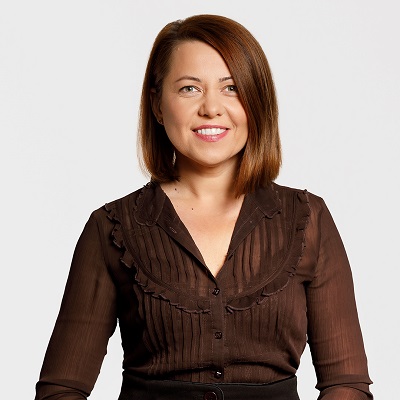 Ms Satnoianu is currently the Visuals and Social Media Coordinator at the European Institute for Gender Equality (EIGE), where she has been working for the last eleven years. Her core tasks refer to translating the technical work of the Institute into engaging content and attractive visual solutions for policy-makers, media, and ultimately the general public. Previously, she worked with the Romanian Ministry of European Integration where she coordinated a national awareness-raising campaign informing women about the equal rights and non-discrimination framework, set in the process of Romania’s accession to the EU. She has a Master’s degree in Gender Studies and a second Master in Marketing and Communications.
Ms Satnoianu is currently the Visuals and Social Media Coordinator at the European Institute for Gender Equality (EIGE), where she has been working for the last eleven years. Her core tasks refer to translating the technical work of the Institute into engaging content and attractive visual solutions for policy-makers, media, and ultimately the general public. Previously, she worked with the Romanian Ministry of European Integration where she coordinated a national awareness-raising campaign informing women about the equal rights and non-discrimination framework, set in the process of Romania’s accession to the EU. She has a Master’s degree in Gender Studies and a second Master in Marketing and Communications.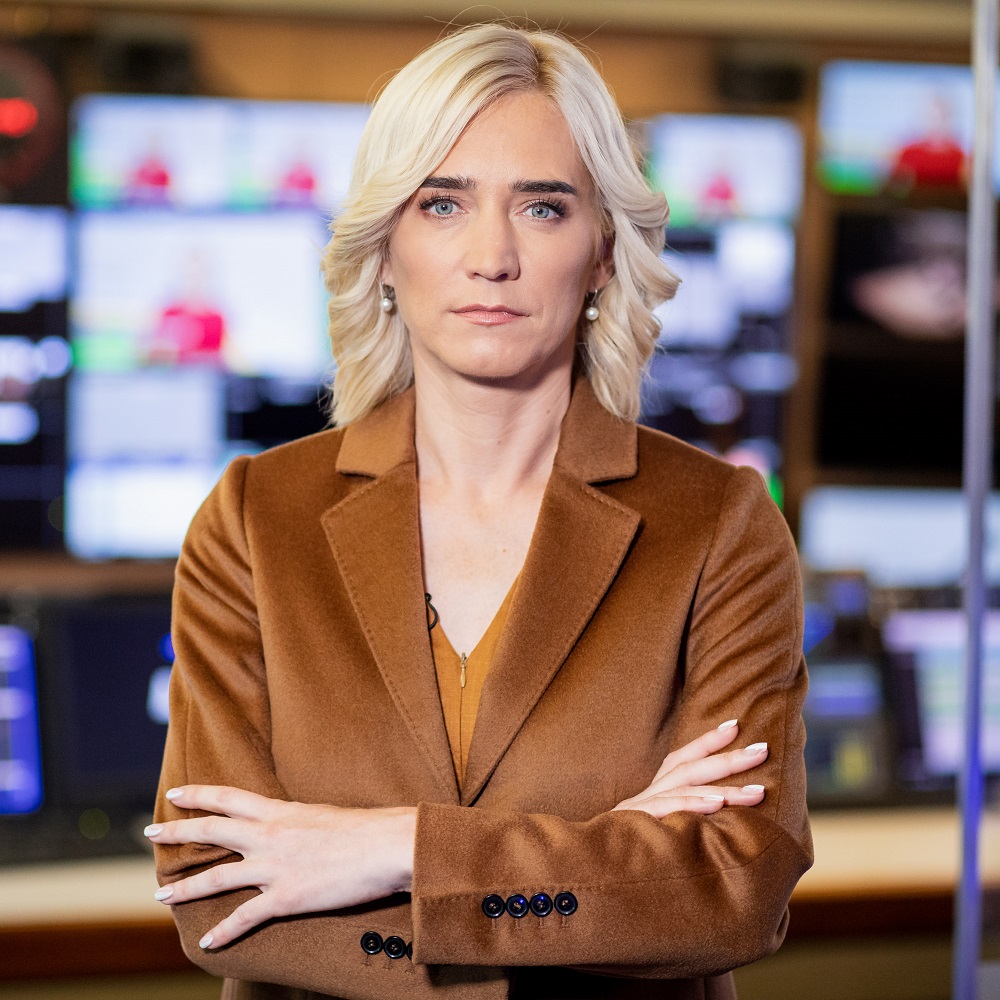 Ms Tapiniene is a TV and radio journalist with more than 20 years of broadcasting and live event experience. She is currently working at Lithuanian public broadcaster LRT (Lithuanian National Radio and Television) as a news anchor and a host of two other TV programmes. She is an experienced moderator of various panels and host of international events.
Ms Tapiniene is a TV and radio journalist with more than 20 years of broadcasting and live event experience. She is currently working at Lithuanian public broadcaster LRT (Lithuanian National Radio and Television) as a news anchor and a host of two other TV programmes. She is an experienced moderator of various panels and host of international events.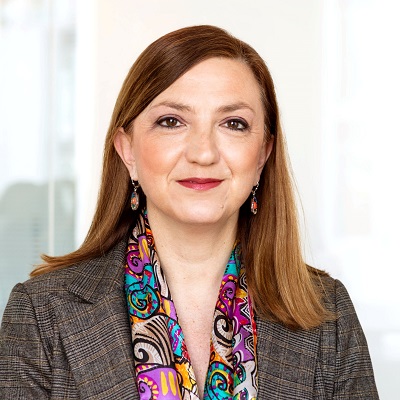 Dr Natasha Azzopardi-Muscat is the Director, Division of Country Health Polices and Systems, WHO Regional Office for Europe.
Dr Natasha Azzopardi-Muscat is the Director, Division of Country Health Polices and Systems, WHO Regional Office for Europe.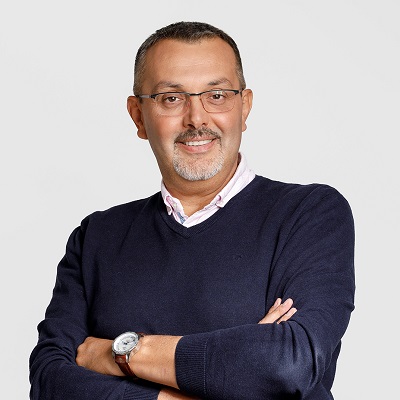 Davide is the Statistics Officer at the European Institute for Gender Equality (EIGE), involved in the analysis and elaboration of Gender Equality Index, producing analysis and statistics elaboration on Beijing Platform of Actions (BPfA) areas of concerns and administrative data sources on gender-based violence.
Davide is the Statistics Officer at the European Institute for Gender Equality (EIGE), involved in the analysis and elaboration of Gender Equality Index, producing analysis and statistics elaboration on Beijing Platform of Actions (BPfA) areas of concerns and administrative data sources on gender-based violence.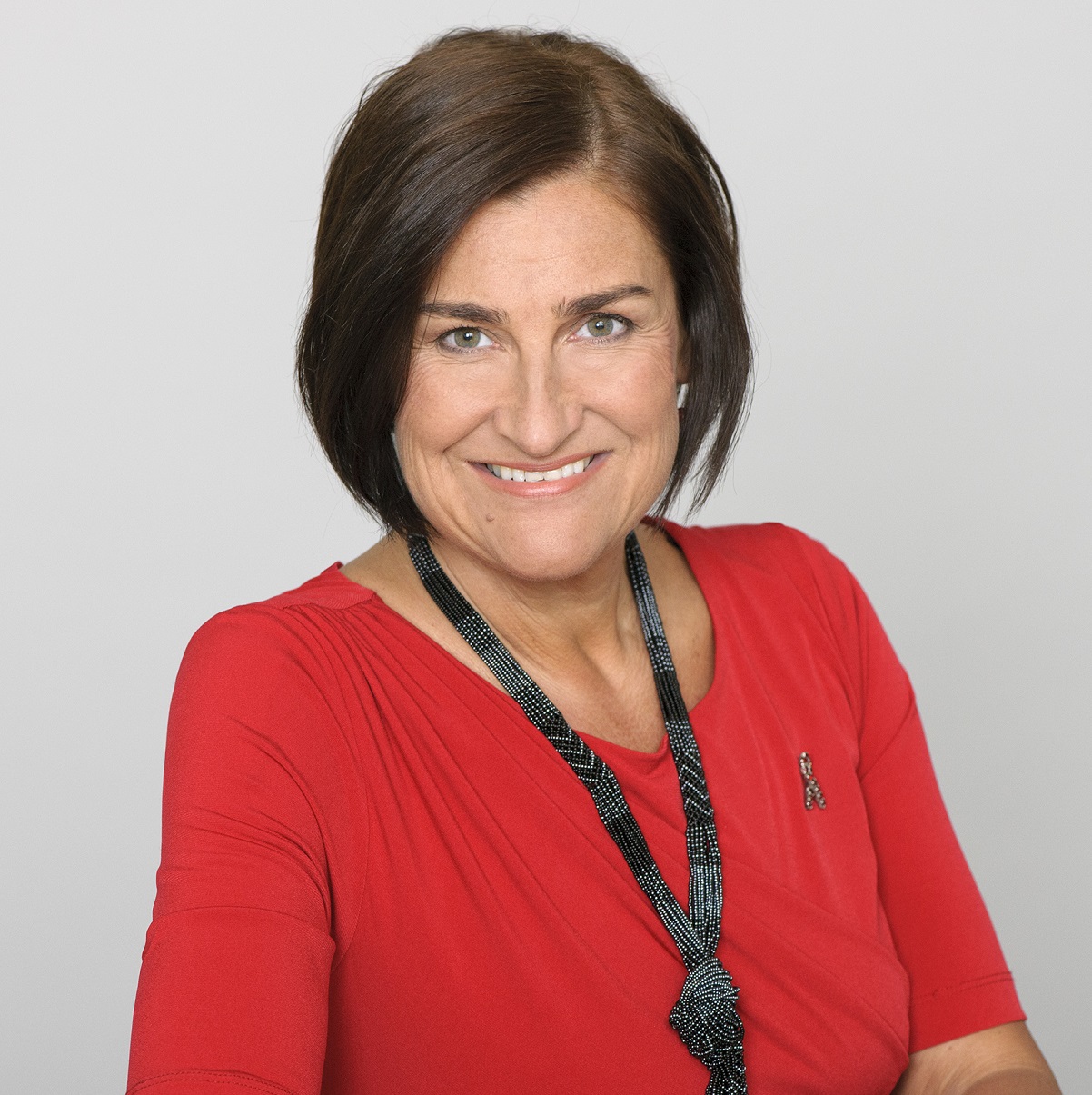 Petra Bayr is a Member of the Austrian National Council since 2002 and SPÖ spokesperson for global development. She is currently President of the European Parliamentarian Forum on Sexual and Reproductive Rights (EPF), Chairperson of the Committee on Equality and Non-Discrimination at the Parliamentary Assembly of the Coucil of Europe, Member of the Committee on Strategy, Investment and Policy of the International Planned Parenthood Federation, and Board Member and Treasurer of Parliamentarians for Global Action (PGA).
Petra Bayr is a Member of the Austrian National Council since 2002 and SPÖ spokesperson for global development. She is currently President of the European Parliamentarian Forum on Sexual and Reproductive Rights (EPF), Chairperson of the Committee on Equality and Non-Discrimination at the Parliamentary Assembly of the Coucil of Europe, Member of the Committee on Strategy, Investment and Policy of the International Planned Parenthood Federation, and Board Member and Treasurer of Parliamentarians for Global Action (PGA).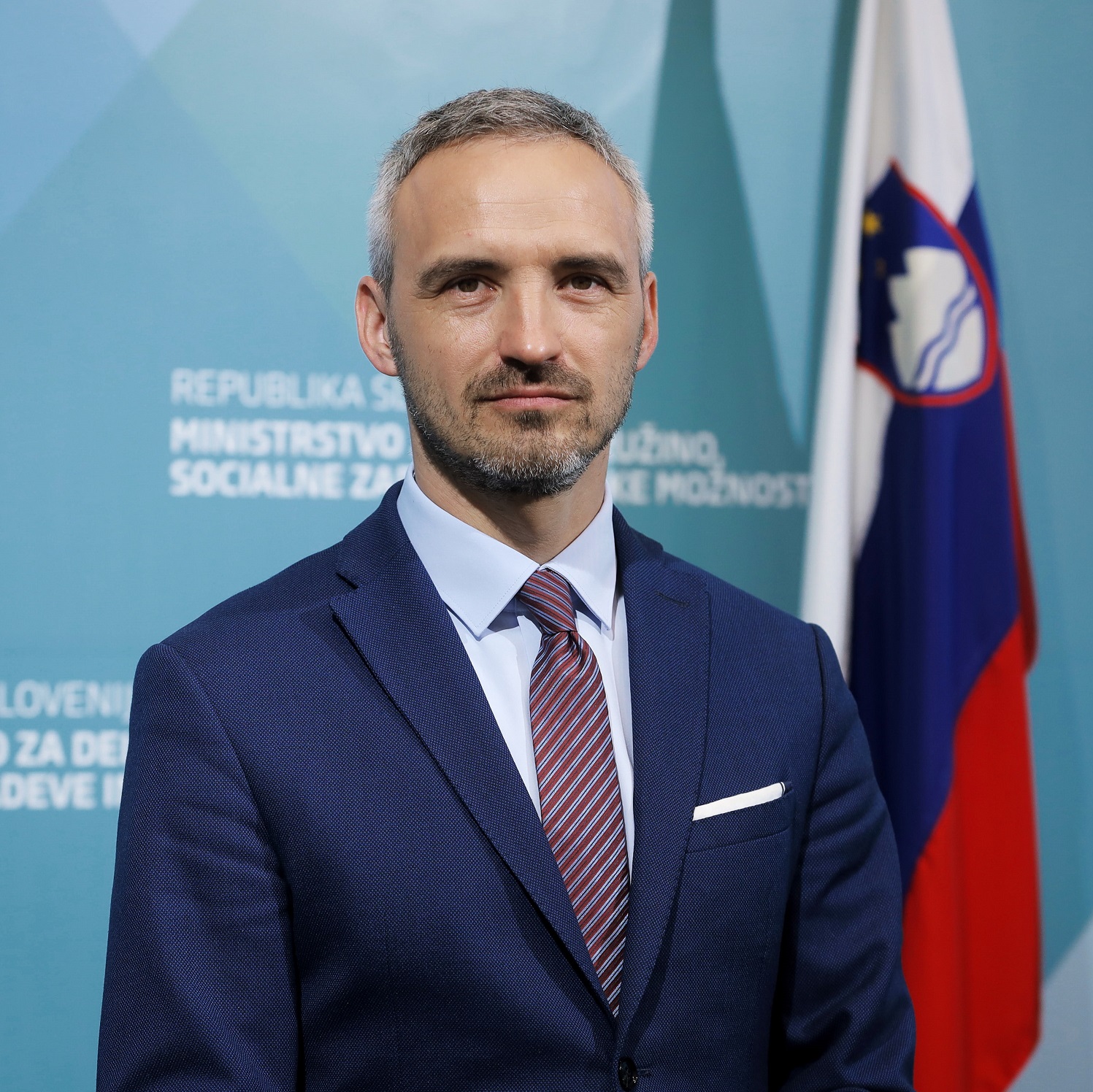 Janez Cigler Kralj is the Minister of Labour, Family, Social Affairs and Equal Opportunities, Slovenia. He is also the head of the NSi Workers' Association, an organisational unit within the NSi and a member of two EU-level workers' organisations: the EZA and EUCDW. Since 2019, he has been a member of the presidency of the EUCDW (European Union of Christian Democratic Workers), an important workers' organisation within the EPP. He was also actively involved in the work of the EZA (das Europäische Zentrum für Arbeitnehmerfragen – European Centre for Workers' Questions). As part of this, he regularly worked with representatives of trade unions and employers from Slovenia and the entire EU. The main objective of these organisations is to foster social dialogue.
Janez Cigler Kralj is the Minister of Labour, Family, Social Affairs and Equal Opportunities, Slovenia. He is also the head of the NSi Workers' Association, an organisational unit within the NSi and a member of two EU-level workers' organisations: the EZA and EUCDW. Since 2019, he has been a member of the presidency of the EUCDW (European Union of Christian Democratic Workers), an important workers' organisation within the EPP. He was also actively involved in the work of the EZA (das Europäische Zentrum für Arbeitnehmerfragen – European Centre for Workers' Questions). As part of this, he regularly worked with representatives of trade unions and employers from Slovenia and the entire EU. The main objective of these organisations is to foster social dialogue.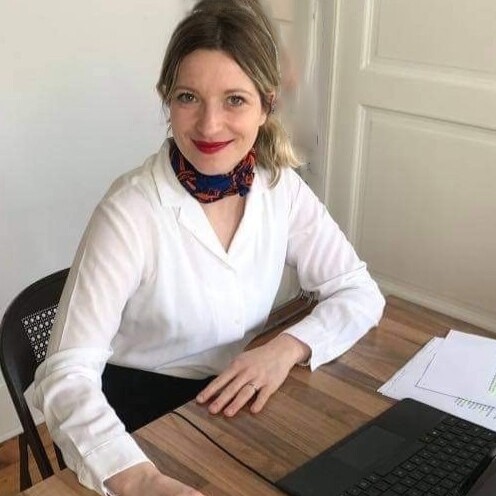 Veronica Collins is a Communications Officer at EIGE. She has worked on women’s rights throughout her career, starting with advocacy in the European Parliament, followed by the U.N. in Kosovo and a Burmese NGO in Myanmar. She has an MSc in EU policymaking from University College London, and a BA in English Literature from the University of Bristol.
Veronica Collins is a Communications Officer at EIGE. She has worked on women’s rights throughout her career, starting with advocacy in the European Parliament, followed by the U.N. in Kosovo and a Burmese NGO in Myanmar. She has an MSc in EU policymaking from University College London, and a BA in English Literature from the University of Bristol. 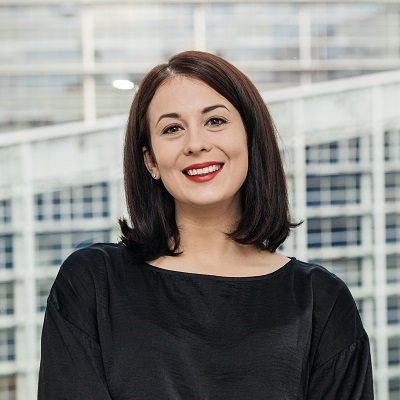 Katalin studied medicine in Budapest and health economics in the Netherlands before she started her political career at Momentum Movement, a newly established centre-progressive party. She was one of the founding members of the party and later she became a candidate for the European Parliamentary elections. After taking up her mandate in the European Parliament, she was elected for the position of Vice-President of Renew Europe. Katalin is working actively as a member of the Committee on Foreign Affairs, the Committee on Human Rights, the Committee on Regional Development and the Committee on Budgetary Control. She is an active member of the European Parliament’s Gender Mainstreaming Network, as well as the bureau member of the Anti-Corruption Intergroup. Katalin is also the Chair of Renew Europe’s Working Group on Values and Democracy. As a young female representative, she is here to remind everyone that politics is not a man’s game.
Katalin studied medicine in Budapest and health economics in the Netherlands before she started her political career at Momentum Movement, a newly established centre-progressive party. She was one of the founding members of the party and later she became a candidate for the European Parliamentary elections. After taking up her mandate in the European Parliament, she was elected for the position of Vice-President of Renew Europe. Katalin is working actively as a member of the Committee on Foreign Affairs, the Committee on Human Rights, the Committee on Regional Development and the Committee on Budgetary Control. She is an active member of the European Parliament’s Gender Mainstreaming Network, as well as the bureau member of the Anti-Corruption Intergroup. Katalin is also the Chair of Renew Europe’s Working Group on Values and Democracy. As a young female representative, she is here to remind everyone that politics is not a man’s game. 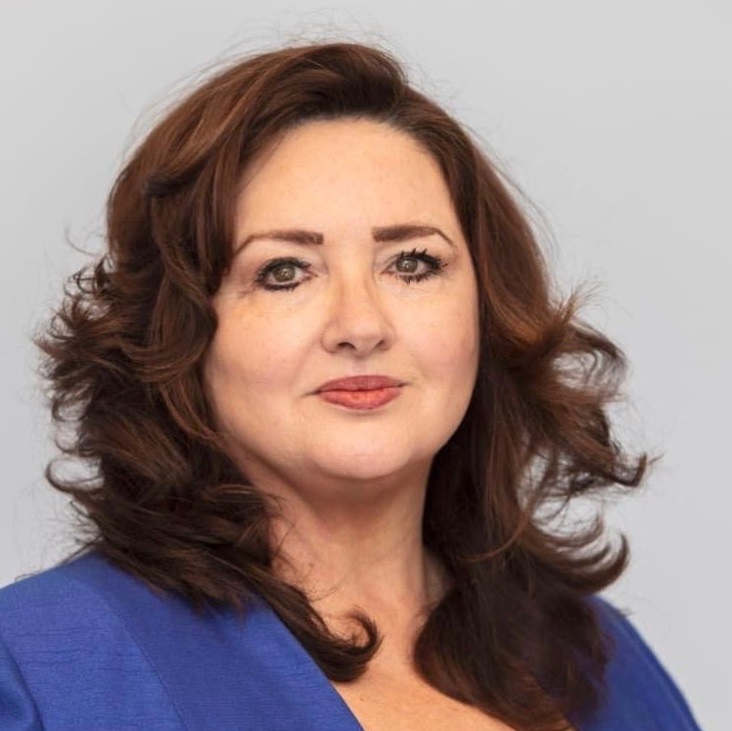 Helena Dalli is the first EU Commissioner for Equality since December 2019. Her role is to deliver on the Union of Equality chapter within the Political Guidelines of President von der Leyen, by strengthening Europe’s commitment to equality and inclusion in all of its senses.
Helena Dalli is the first EU Commissioner for Equality since December 2019. Her role is to deliver on the Union of Equality chapter within the Political Guidelines of President von der Leyen, by strengthening Europe’s commitment to equality and inclusion in all of its senses. Ms. Maria Teresa Fabregas is, since August 2020, one of the Directors in the Task Force RECOVER in the European Commission, in charge of the implementation of the Recovery and Resilience Facility. Maria Teresa joined the European Commission in 1997. Since then she has worked in the Directorate-General for Enterprise, the Directorate-General for Trade, the Directorate-General for the Internal Market, the Directorate-General for Financial Stability, Financial Services and Capital Markets Union where she became Head of Unit and the Directorate-General for Taxation and Customs Union where she was appointed Director for Indirect Taxation and Tax Administration.
Ms. Maria Teresa Fabregas is, since August 2020, one of the Directors in the Task Force RECOVER in the European Commission, in charge of the implementation of the Recovery and Resilience Facility. Maria Teresa joined the European Commission in 1997. Since then she has worked in the Directorate-General for Enterprise, the Directorate-General for Trade, the Directorate-General for the Internal Market, the Directorate-General for Financial Stability, Financial Services and Capital Markets Union where she became Head of Unit and the Directorate-General for Taxation and Customs Union where she was appointed Director for Indirect Taxation and Tax Administration.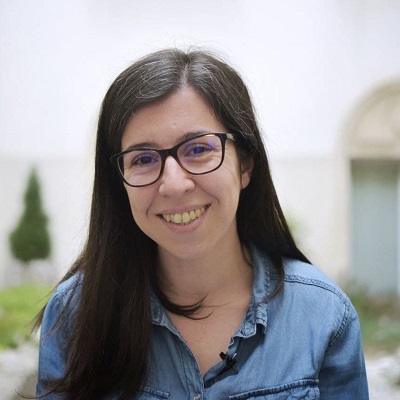 Alba González Sanz is an advisor to the Spanish Minister of Equality. She has previously worked as a parliamentary assistant in Congress and a councilwoman. She holds a PhD in Gender and Diversity, a Master in Gender Equality in Human, Legal and Social Sciences and a Master in Gender and Diversity. Her academic research focuses on the construction of women's citizenship in Spain through the analysis of feminist essays between the eighteenth and twentieth centuries.
Alba González Sanz is an advisor to the Spanish Minister of Equality. She has previously worked as a parliamentary assistant in Congress and a councilwoman. She holds a PhD in Gender and Diversity, a Master in Gender Equality in Human, Legal and Social Sciences and a Master in Gender and Diversity. Her academic research focuses on the construction of women's citizenship in Spain through the analysis of feminist essays between the eighteenth and twentieth centuries.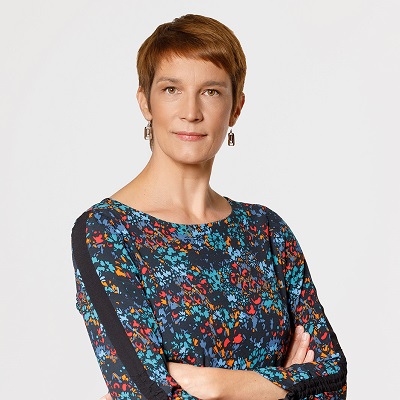 Maruša Gortnar is the Head of Operations Unit at the European Institute for Gender Equality (EIGE). She is responsible for managing, strategic planning and implementation of the institute’s work in the areas of research and data collection, gender mainstreaming and gender-based violence. Before joining EIGE she worked for many years in the area of gender equality in the Slovenian Government, latterly leading the Equal Opportunities Division of the Ministry of Labour, Family, Social Affairs and Equal Opportunities. A graduate of the Faculty of Social Sciences at the University of Ljubljana, she holds an MA Degree in Gender Studies from the Central European University.
Maruša Gortnar is the Head of Operations Unit at the European Institute for Gender Equality (EIGE). She is responsible for managing, strategic planning and implementation of the institute’s work in the areas of research and data collection, gender mainstreaming and gender-based violence. Before joining EIGE she worked for many years in the area of gender equality in the Slovenian Government, latterly leading the Equal Opportunities Division of the Ministry of Labour, Family, Social Affairs and Equal Opportunities. A graduate of the Faculty of Social Sciences at the University of Ljubljana, she holds an MA Degree in Gender Studies from the Central European University.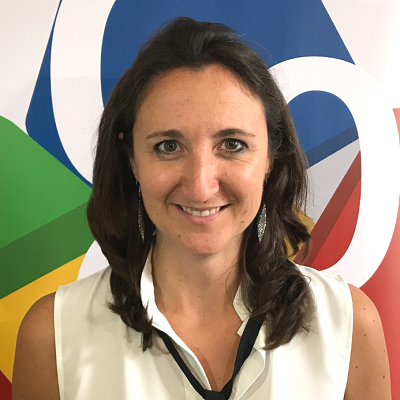 Elizabeth Gosme is mother of two rebel girls (6 and 10 years) and Director of COFACE Families Europe, a network of 50 + organisations across 23 countries promoting the well-being, health and security of families and their members in a changing society. She holds a Bachelor of Arts in music&languages from Durham University and a Masters in Contemporary European studies from the universities of Bath, Siena and Sciences Po Paris. She is an EU social policy analyst with nineteen years of experience in EU affairs representing the interests of civil society organisations. She has worked extensively with various EU institutions contributing to building a social policy architecture for Europe, monitoring key frameworks such as the EU social open method of coordination, the EU Semester, the European Structural and Investment Funds, EU public procurement legislation, the EU urban agenda, EU-SILC monitoring in preparation of the 2011 population and housing census, EU work-life balance directive, EU Gender Equality Strategy 2020-2025, EU Child Guarantee, European Pillar of Social Rights, taking part in key stakeholder consultative groups for these different frameworks. She has also worked with national governments and local authorities from across Europe, supporting the development of effective policies to tackle and prevent homelessness.
Elizabeth Gosme is mother of two rebel girls (6 and 10 years) and Director of COFACE Families Europe, a network of 50 + organisations across 23 countries promoting the well-being, health and security of families and their members in a changing society. She holds a Bachelor of Arts in music&languages from Durham University and a Masters in Contemporary European studies from the universities of Bath, Siena and Sciences Po Paris. She is an EU social policy analyst with nineteen years of experience in EU affairs representing the interests of civil society organisations. She has worked extensively with various EU institutions contributing to building a social policy architecture for Europe, monitoring key frameworks such as the EU social open method of coordination, the EU Semester, the European Structural and Investment Funds, EU public procurement legislation, the EU urban agenda, EU-SILC monitoring in preparation of the 2011 population and housing census, EU work-life balance directive, EU Gender Equality Strategy 2020-2025, EU Child Guarantee, European Pillar of Social Rights, taking part in key stakeholder consultative groups for these different frameworks. She has also worked with national governments and local authorities from across Europe, supporting the development of effective policies to tackle and prevent homelessness.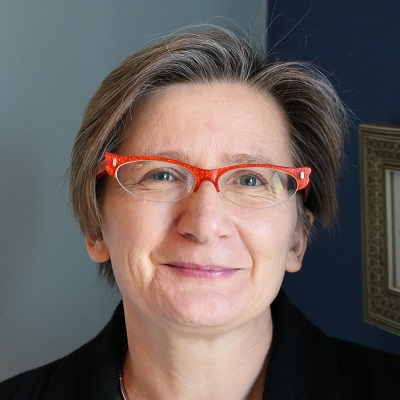 Sarah Hawkes is a medical doctor with a degree in sociology and a PhD in epidemiology. She is Professor of Global Public Health at University College London where she leads a research theme analysing the use of research evidence in policy processes, particularly in relation to gender equality and health equity. Sarah is Director of the UCL Centre for Gender and Global Health, co-Chair of the Lancet Commission on Gender and Global Health, and co-Director and co-founder of Global Health 50/50 which advances action and accountability for gender equality in global health. She has lived and worked for much of the past 25 years in Asia, where she has gathered evidence, collaborated to strengthen capacity, and operated at the interface of policy and research communities – working alongside national Governments, UN agencies and civil society organisations promoting gender equality, health equity and human rights in health policies and programmes.
Sarah Hawkes is a medical doctor with a degree in sociology and a PhD in epidemiology. She is Professor of Global Public Health at University College London where she leads a research theme analysing the use of research evidence in policy processes, particularly in relation to gender equality and health equity. Sarah is Director of the UCL Centre for Gender and Global Health, co-Chair of the Lancet Commission on Gender and Global Health, and co-Director and co-founder of Global Health 50/50 which advances action and accountability for gender equality in global health. She has lived and worked for much of the past 25 years in Asia, where she has gathered evidence, collaborated to strengthen capacity, and operated at the interface of policy and research communities – working alongside national Governments, UN agencies and civil society organisations promoting gender equality, health equity and human rights in health policies and programmes. 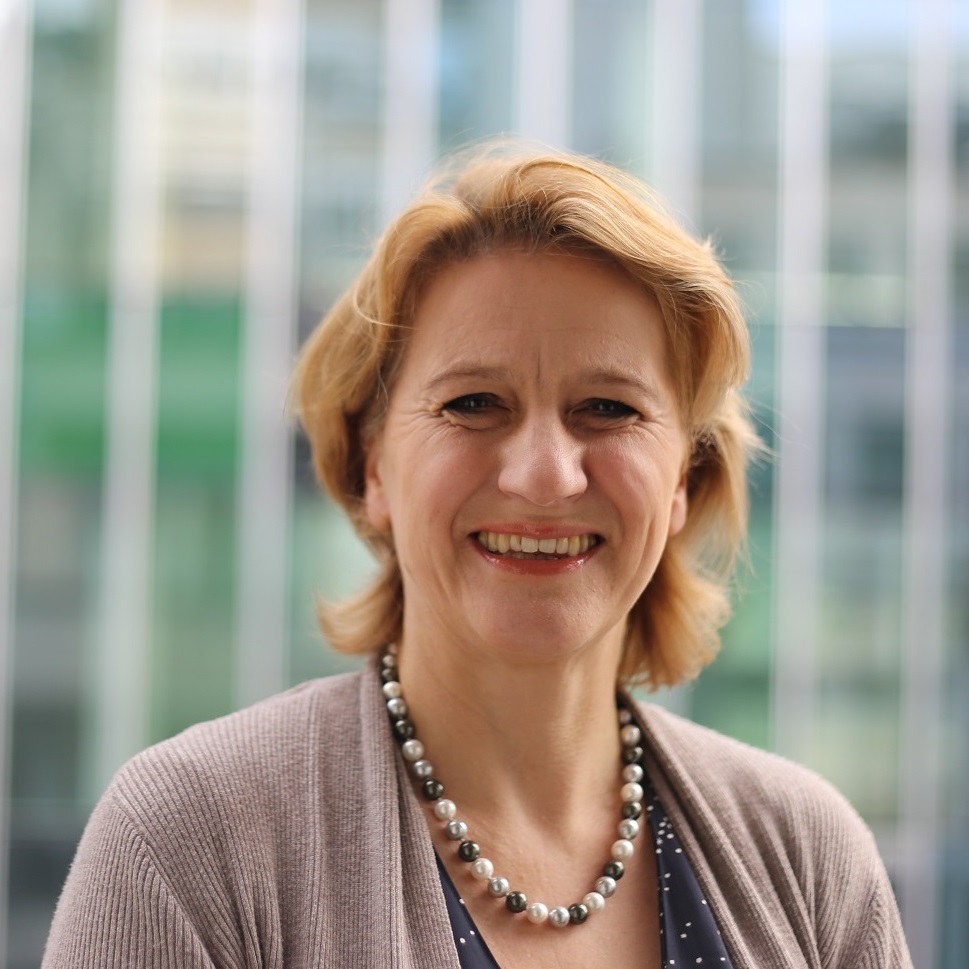 Caroline Hickson has been the Regional Director of the International Planned Parenthood Federation European Network (IPPF EN) since 2016. IPPF is a global federation of 133 Member Associations and partners working across 166 countries in all continents to deliver sexual and reproductive health and rights for all, particularly underserved women, girls and young people. The European Network comprises thirty member organisations across Europe and Central Asia, with the secretariat office based in Brussels. Caroline is originally from Ireland and holds a master’s in International Relations. She has worked in the INGO sector for over 30 years across the USA, Ireland, the UK, Germany and Belgium covering a variety of sectors including health and homelessness, international development, human rights and trade.
Caroline Hickson has been the Regional Director of the International Planned Parenthood Federation European Network (IPPF EN) since 2016. IPPF is a global federation of 133 Member Associations and partners working across 166 countries in all continents to deliver sexual and reproductive health and rights for all, particularly underserved women, girls and young people. The European Network comprises thirty member organisations across Europe and Central Asia, with the secretariat office based in Brussels. Caroline is originally from Ireland and holds a master’s in International Relations. She has worked in the INGO sector for over 30 years across the USA, Ireland, the UK, Germany and Belgium covering a variety of sectors including health and homelessness, international development, human rights and trade. 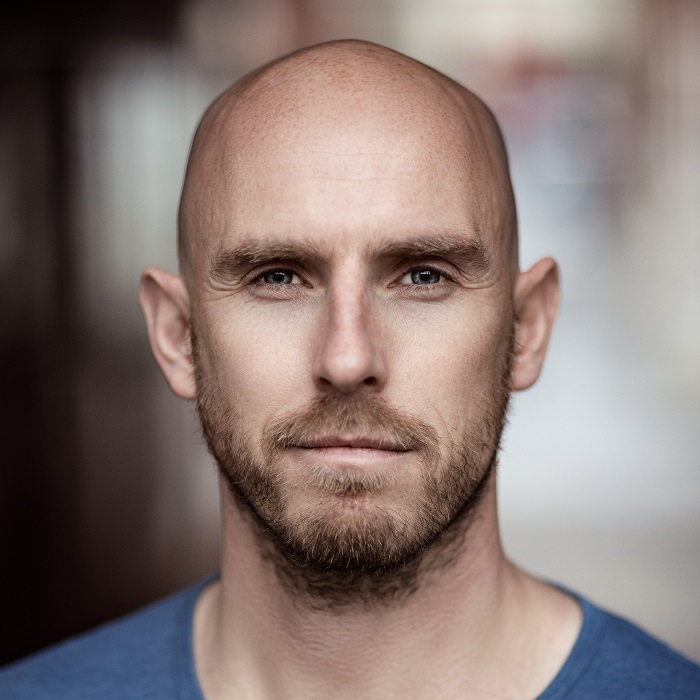 Neil specialises in the areas of Performance Coaching, Mentoring, Mental Health & Wellbeing Consulting.
Neil specialises in the areas of Performance Coaching, Mentoring, Mental Health & Wellbeing Consulting.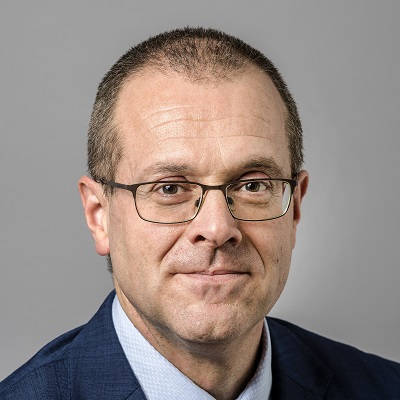 Dr Hans Henri P. Kluge began his term as WHO Regional Director for Europe on 1 February 2020.
Dr Hans Henri P. Kluge began his term as WHO Regional Director for Europe on 1 February 2020.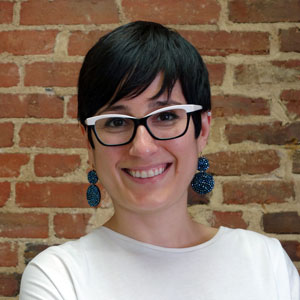 Giovanna Lauro is the Vice President of Programs & Research at Promundo. She has worked for over fifteen years on the promotion of sexual reproductive health and rights and the prevention of gender-based violence through gender-transformative approaches - including a focus on transforming masculinities by engaging men and boys in partnership with women, girls, and individuals of all gender identities.
Giovanna Lauro is the Vice President of Programs & Research at Promundo. She has worked for over fifteen years on the promotion of sexual reproductive health and rights and the prevention of gender-based violence through gender-transformative approaches - including a focus on transforming masculinities by engaging men and boys in partnership with women, girls, and individuals of all gender identities.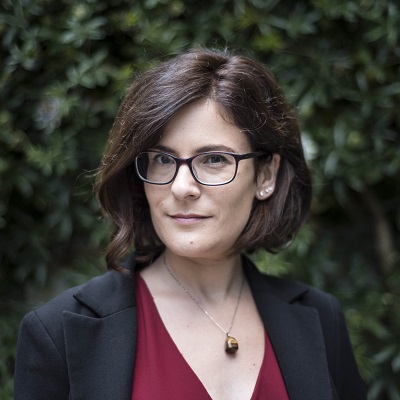 Claudia Marinetti is director at Mental Health Europe (MHE) and has extensive expertise in the areas of health and its social determinants, well-being and equity. With 15 years of experience in management, policy, advocacy and research, Claudia has worked across sectors to improve the well-being of people, including a focus on approaches based on human rights, access to quality services, Health in All Policies, and social inclusion.
Claudia Marinetti is director at Mental Health Europe (MHE) and has extensive expertise in the areas of health and its social determinants, well-being and equity. With 15 years of experience in management, policy, advocacy and research, Claudia has worked across sectors to improve the well-being of people, including a focus on approaches based on human rights, access to quality services, Health in All Policies, and social inclusion.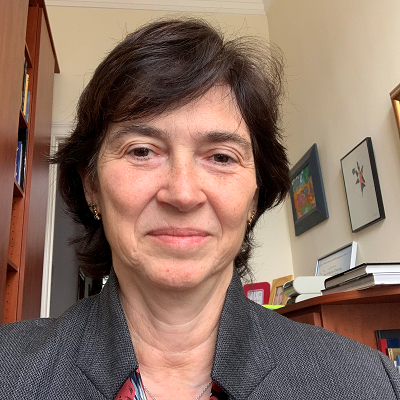 Isabel de la Mata, Principal Adviser for Health and Crisis Management in the European Commission.
Isabel de la Mata, Principal Adviser for Health and Crisis Management in the European Commission.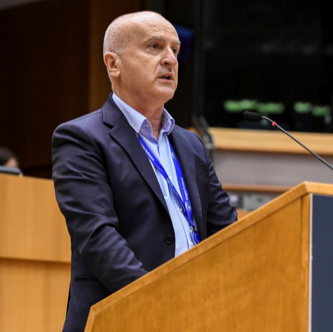 Social democrat, politician, teacher by profession.
Social democrat, politician, teacher by profession.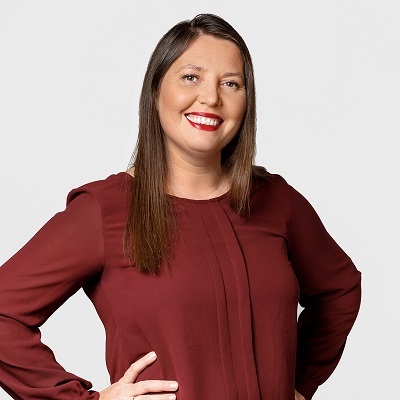 Blandine Mollard works as a member of the Research and Indices Team of the European Institute for Gender Equality (EIGE) in Vilnius. Her work has focused on developing the measurement of the phenomenon of violence against women in the EU in the context of the Gender Equality Index.
Blandine Mollard works as a member of the Research and Indices Team of the European Institute for Gender Equality (EIGE) in Vilnius. Her work has focused on developing the measurement of the phenomenon of violence against women in the EU in the context of the Gender Equality Index. 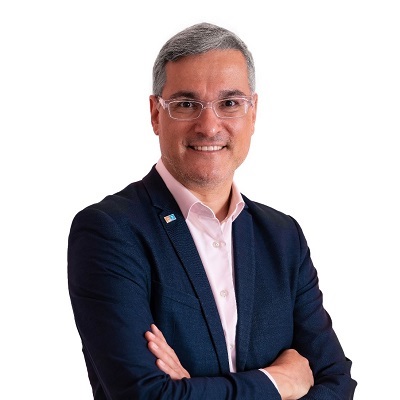 Dragoș Pîslaru is a Romanian economist and politician. He is member of the European Parliament since 2019 on behalf of USRPLUS, affiliated to the European political family Renew Europe.
Dragoș Pîslaru is a Romanian economist and politician. He is member of the European Parliament since 2019 on behalf of USRPLUS, affiliated to the European political family Renew Europe.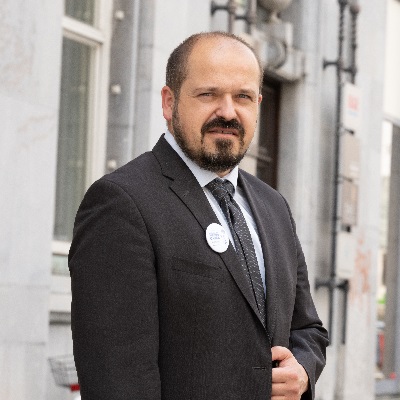 Janez Poklukar is the Minister of Health, Slovenia. He took the office on 23 February 2021.
Janez Poklukar is the Minister of Health, Slovenia. He took the office on 23 February 2021.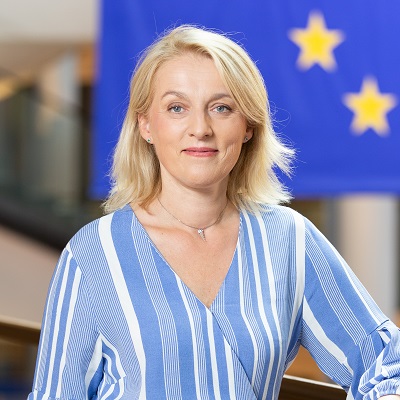 Evelyn Regner is a European politician of the Social Democratic Party of Austria (SPÖ) and Member of the European Parliament, since she was firstly elected in 2009.
Evelyn Regner is a European politician of the Social Democratic Party of Austria (SPÖ) and Member of the European Parliament, since she was firstly elected in 2009.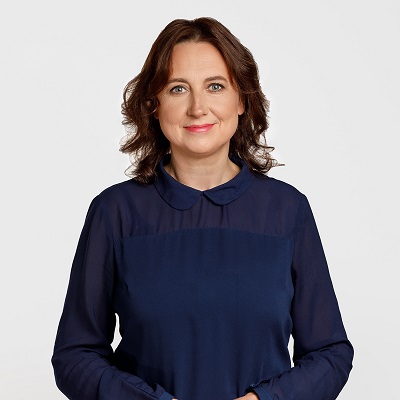 Jolanta Reingarde PhD has been a senior researcher/analyst at the European Institute for Gender Equality (EIGE) since 2010. She leads the programme on research and statistics. The development of the Gender Equality Index and annual progress reports on the implementation of the Beijing Platform for Action in the EU are two major research areas of the programme.
Jolanta Reingarde PhD has been a senior researcher/analyst at the European Institute for Gender Equality (EIGE) since 2010. She leads the programme on research and statistics. The development of the Gender Equality Index and annual progress reports on the implementation of the Beijing Platform for Action in the EU are two major research areas of the programme.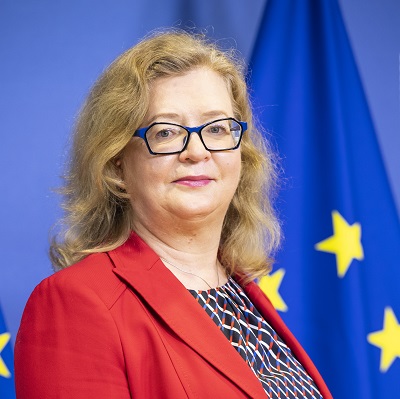 Salla Saastamoinen has been acting Director General of the European Commission’s Directorate-General for Justice and Consumers since February 2020, overseeing a wide range of policy areas, including civil and criminal justice, fundamental rights, data protection, rule of law, equality, citizenship and consumer protection. She is also Director for Civil and Commercial Justice since October 2016. Previously she was the Director for Equality as from 2014. As Director for Civil and Commercial Justice, she is in charge of the development and consolidation of the European area of civil justice, in particular of civil procedural law, private international law, contract law and company law. Salla Saastamoinen has worked in the Commission for 20 years, starting in the Directorate-General for Environment and then working in several areas in the Directorate-General for Justice. Before joining the Commission, Salla Saastamoinen was an associate partner in a law office in Helsinki, Finland. She has a licentiate degree in law from the University of Helsinki, Finland, and post-graduate studies in law from the universities of Saarbrücken, Germany and Zürich, Switzerland.
Salla Saastamoinen has been acting Director General of the European Commission’s Directorate-General for Justice and Consumers since February 2020, overseeing a wide range of policy areas, including civil and criminal justice, fundamental rights, data protection, rule of law, equality, citizenship and consumer protection. She is also Director for Civil and Commercial Justice since October 2016. Previously she was the Director for Equality as from 2014. As Director for Civil and Commercial Justice, she is in charge of the development and consolidation of the European area of civil justice, in particular of civil procedural law, private international law, contract law and company law. Salla Saastamoinen has worked in the Commission for 20 years, starting in the Directorate-General for Environment and then working in several areas in the Directorate-General for Justice. Before joining the Commission, Salla Saastamoinen was an associate partner in a law office in Helsinki, Finland. She has a licentiate degree in law from the University of Helsinki, Finland, and post-graduate studies in law from the universities of Saarbrücken, Germany and Zürich, Switzerland.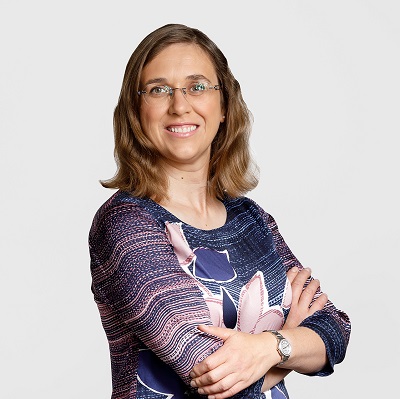 Dr. Lina Salanauskaite is a researcher at the European Institute for Gender Equality (EIGE), where she joined in 2016. She leads and conducts analysis on various gender equality issues, ranging from in relation to labour market and educational issues to the COVID-19 pandemic impact.
Dr. Lina Salanauskaite is a researcher at the European Institute for Gender Equality (EIGE), where she joined in 2016. She leads and conducts analysis on various gender equality issues, ranging from in relation to labour market and educational issues to the COVID-19 pandemic impact.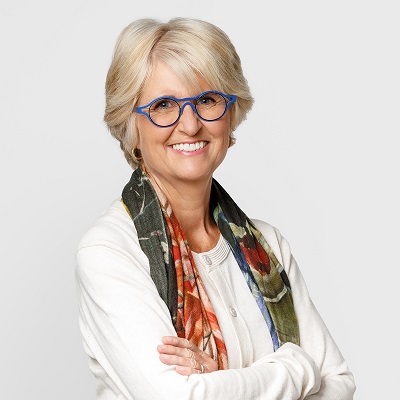 Carlien Scheele is the Director of the European Institute for Gender Equality (EIGE) in Vilnius, Lithuania.
Carlien Scheele is the Director of the European Institute for Gender Equality (EIGE) in Vilnius, Lithuania. 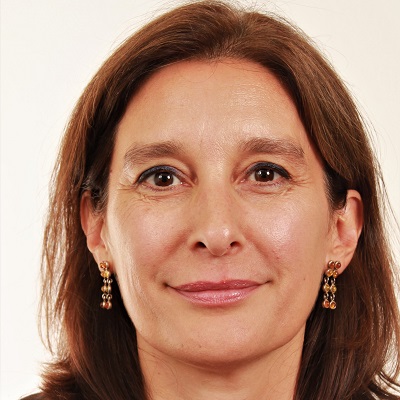 Isabel has been responsible for the gender and health area of work in the WHO Regional Office for Europe since 2007, first based in Copenhagen and more recently in Venice where WHO has the Office for Health and Development as part of the Division of Country Health Policies and Systems. Isabel developed the area of gender and health in the Regional Office, coordinating the development of the WHO strategies on men and on women’s health, promoting the work on gender in technical areas, such as NCDs, promoting the use of gender statistics and assisting technical programmes and countries in mainstreaming gender in health policies and programmes.
Isabel has been responsible for the gender and health area of work in the WHO Regional Office for Europe since 2007, first based in Copenhagen and more recently in Venice where WHO has the Office for Health and Development as part of the Division of Country Health Policies and Systems. Isabel developed the area of gender and health in the Regional Office, coordinating the development of the WHO strategies on men and on women’s health, promoting the work on gender in technical areas, such as NCDs, promoting the use of gender statistics and assisting technical programmes and countries in mainstreaming gender in health policies and programmes.